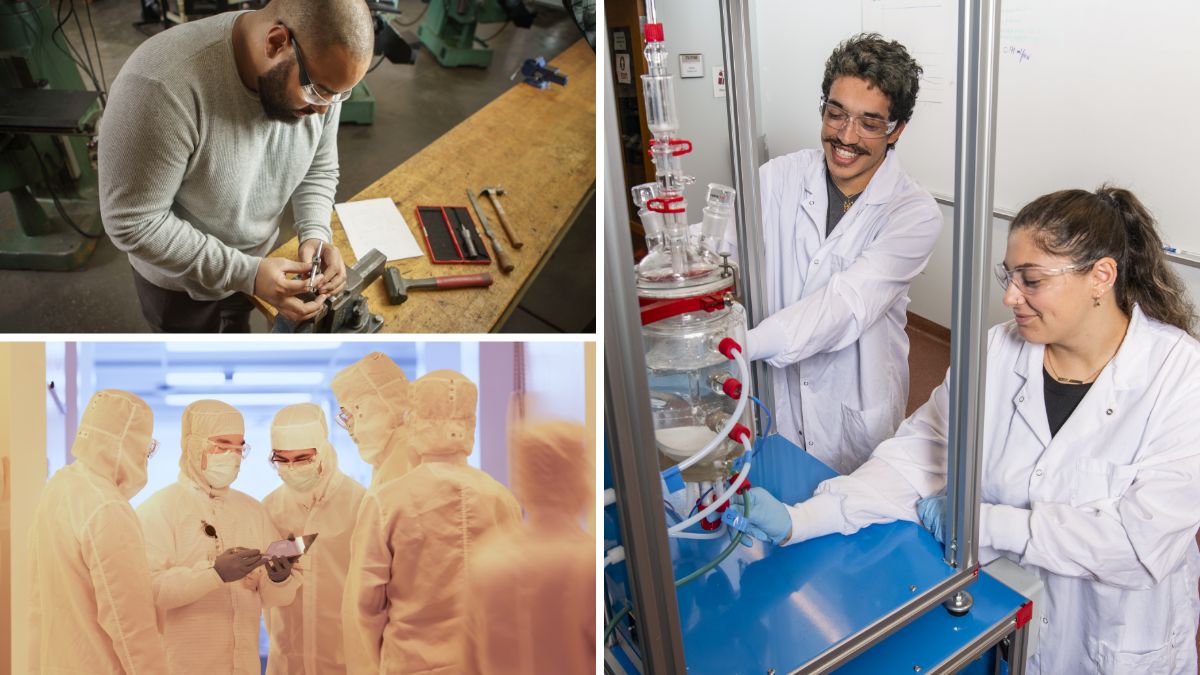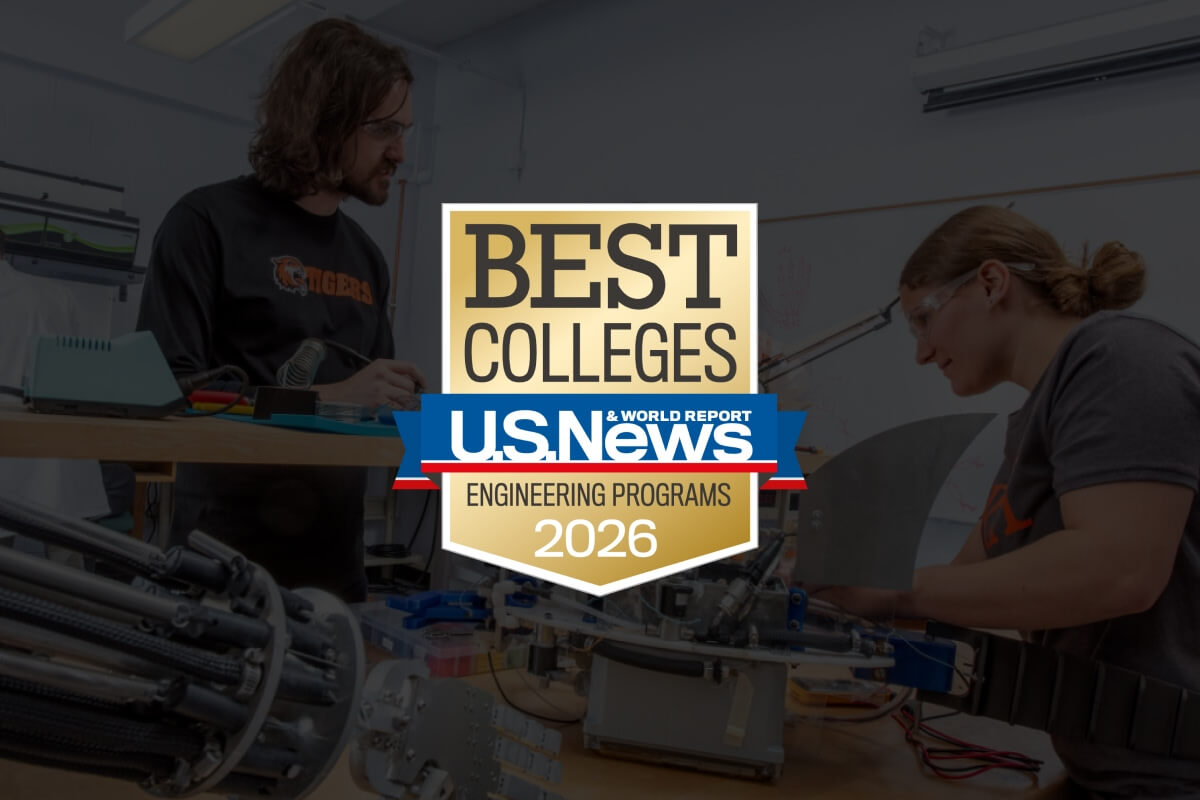Engineering Exploration

Engineering Exploration
- RIT /
- College of Engineering /
- Academics /
- Engineering Exploration
Spend up to a year exploring RIT’s portfolio of engineering majors before you declare a major.
Overview for Engineering Exploration
If you are passionate about engineering and all it encompasses – from science, mathematics, innovation, and design to processes and operations – but aren’t sure which major best matches your interests and career goals, the engineering exploration option is for you. Through a seminar offered in your first semester, you will gain an in-depth understanding of each engineering major, enabling you to identify the program that best meets your interests and career aspirations. You will have a full academic year to make an informed decision about the engineering career path that’s best for you as you remain on pace to graduate on time.
The engineering exploration option is for students who would like additional time to fully explore RIT’s portfolio of engineering majors before committing to a program of study. Students may choose a major anytime during the first year.
What You’ll Study
During your first semester, you’ll take a one-credit course, Engineering Exploration Seminar, which provides an overview of RIT’s engineering programs and the career opportunities in each field. Since each engineering program shares similar first-year course offerings, the course work you take as an engineering exploration student will transfer into all engineering programs without any loss of time toward graduation.
Students in the engineering exploration program are guaranteed admission into any engineering program in the Kate Gleason College, provided the student is in good academic standing and has successfully completed Calculus I.
Engineering vs. Engineering Technology
Two dynamic areas of study, both with outstanding outcomes rates. Which do you choose?
What’s the difference between engineering and engineering technology? It’s a question we’re asked all the time. While there are subtle differences in the course work between the two, choosing a major in engineering vs. engineering technology is more about identifying what you like to do and how you like to do it.
-
#57 Best Engineering Undergraduate Programs, 2026
RIT’s engineering majors are ranked among the Best Undergraduate Engineering Programs in the nation.
-
Join Us for Accepted Student Open House
Visit campus on March 28 or April 11 to meet faculty, tour campus, and ask your questions.
Curriculum for 2025-2026 for Engineering Exploration
Current Students: See Curriculum Requirements
Admissions and Financial Aid
First-Year Admission
A strong performance in a college preparatory program is expected. This includes:
- 4 years of English
- 3 years of social studies and/or history
- 4 years of math is required and must include algebra, geometry, algebra 2/trigonometry, and pre-calculus. Calculus is preferred.
- 2-3 years of science. Chemistry and physics are required.
Transfer Admission
Transfer course recommendations without associate degree
Pre-engineering courses such as calculus, calculus-based physics, chemistry, and liberal arts.
Appropriate associate degree programs for transfer
AS degree in engineering science
Financial Aid and Scholarships
100% of all incoming first-year and transfer students receive aid.
RIT’s personalized and comprehensive financial aid program includes scholarships, grants, loans, and campus employment programs. When all these are put to work, your actual cost may be much lower than the published estimated cost of attendance.
Learn more about financial aid and scholarships
Accreditation
Related News
-
December 6, 2023

SHED serves new generation of makers, performers, and active learners
With its five extra-large classrooms, seven makerspaces, performing arts studios, and glass box theater, the $120 million SHED complex is made for a new generation of RIT students who see themselves as makers and doers, performers, and active learners.
-
April 25, 2023

SHED and Wallace Library classrooms offer new teaching and learning experience
When the Student Hall for Exploration and Development (SHED) opens in the fall, the multi-use facility will create an entirely new learning environment for RIT faculty and students alike.
Contact
- Matthew Marshall
- Associate Dean, Undergraduate Programs
- Dean’s Office
- Kate Gleason College of Engineering
- 585‑475‑7142
- mmmeie@rit.edu





